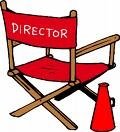Урок розробка уроку "Кіно"
Topic: cinema
Learning goals: To teach the pupils:
- to recognize, understand and operate new words and word-combinations when listening, reading the text and doing exercises;
- to speak about cinema
- to break the ice and foster a safe environment for learning.
To develop skills of speaking and reading, listening
To teach pupils about the importance of art
To encourage pupils to use English creatively
Lesson
Topic: cinema
Learning goals: To teach the pupils:
- to recognize, understand and operate new words and word-combinations when listening, reading the text and doing exercises;
- to speak about cinema
- to break the ice and foster a safe environment for learning.
- To develop skills of speaking and reading, listening
- To teach pupils about the importance of art
- To encourage pupils to use English creatively
Materials and equipment: printed copies of the text, the set of handouts ,video, audio
Procedure of the lesson
I. Introduction
1. Greeting
It’s so nice to see all of you today. Take your seats. How are you today? Tell me about your mood… now I see you’re in а good mood and ready to start working. Let’s begin our lesson.
Warming-up
- Test writing
Ii vocabulary

 At the movies
At the movies
1 - Complete the table using the vocabulary next page.
|
An actor in a film who does not say anything but is part of a crowd. |
|
|
Someone who shows people to their seats at a theatre, cinema, wedding etc |
|
|
Short appearance in a film or play by a well-known actor |
|
|
The words that are written down for actors to say in a film, and the instructions that tell them what they should do |
|
|
An advertisement for a new film or television show |
|
|
All the people who perform in a play, film |
|
|
The recorded music from a film |
|
|
Foreign films, or films made by small film companies |
|
|
A full-length film that has a story and is acted by professional actors, and which is usually shown in a cinema |
|
|
Film that tells an exciting story about murder or crime |
|
|
Films about real events |
|
|
A famous and successful actor; the person who has the main part, or one of them, in a film, play, show etc |
|
|
A book or film that is very good or successful |
|
|
The most important part in a film |
|
|
The events that form the main story of a book, film, or play |
|
|
A story that is told using sound and moving pictures, shown at a cinema or on television |
|
|
Someone whose job is to control the preparation of a play, film, or broadcast, but who does not direct the actors |
|
|
The person who gives instructions to the actors and other people working on a film or play |
|
|
Someone who operates a camera for films or television |
|
|
Abook, film, play etc that continues the story of an earlier one, usually written or made by the same person |
|
|
A very popular and successful film or play |
|
|
The money spent |
|
|
Translation of the dialogue of a foreign-language film shown at the bottom of the screen. |
|
|
The first, unedited print of a movie scene |
|
|
A part of Los Angeles in California where films are made, often used to refer to the film industry in general |
|
|
A film that is made cheaply and is of low quality |
|
|
A film that shows a lot of sexual activity |
|
|
A film you make, often of a family occasion, that is intended to be shown at home |
|
|
A critical article or report about a film |
|
|
A big cinema with many screens. |
|
|
Short scene filmed to find out if the actor is good in a particular part |
|
|
Gold statuette awarded annually in the United States by the Academy of Motion Picture Arts and Sciences for outstanding achievements in films Official name Academy Award |
|
|
The list at the start of the film that tells you the name of the film, the actors and director; the words on the screen at the end that tell you who played who, and who was the cameraman, set designer, etc. |
|
|
“And the Oscar goes to….” |
|



Vocabulary bank:
|
extra |
Film; movie |
|
usher |
producer |
|
cameo |
director |
|
Screenplay; script |
Cameraman / camerawoman |
|
hit |
Hollywood |
|
budget |
star |
|
B-movie |
Home movie; home video |
|
Blue movie |
blockbuster |
|
plot |
Starring role |
|
thriller |
trailer |
|
Non-fiction films |
cast |
|
soundtrack |
|
|
Art house films |
sequel |
|
Screen test |
multiplex |
|
Credits ( opening / closing credits) |
Rush |
|
Film review |
Oscar |
|
Traditional sentence said before handing out the “Oscar” |
Subtitles |
2 – Now complete the sentences using the vocabulary from the previous exercise
a) His dream was to become a Hollywood _____________________.
b) He started his acting career as an ______________________
 c) The entire ______________ of 'Les Miserables' was spectacular.
c) The entire ______________ of 'Les Miserables' was spectacular.
d) The ___________ was a little confusing! I didn’t quite understand the film!
e) Have you seen any good _________________ recently?
f) Feature movies always run over _________________
g) One of Hollywood's major __________________ is Brad Pitt.
3 - What is the difference between the following? (Speaking activity)
 1. A film and a movie.
1. A film and a movie.
2. An art house film and a blockbuster.
3. A co-star and an extra.
4. A cameraman and a projectionist.
5. The cast and casting.
6. Action! and Cut!
7. Actor and actress.
4 – Below you have some excerpts of 3 reviews on the film “Lion King”. Complete them using the words from the box. (There are some extra words)
|
effects // Disney // amazing // plot // technically // feature // cinema // characters // scene // soundtrack // images // tickets // critic // camera // |

“First, the animation quality was _______________ (1)! It was the best I've ever seen from a ________________ (2) movie, certainly for anything of the length of a _____________ (3) film!. And, best of all, I couldn't tell where the computer _______________ (4) were used.”
“The LION KING is __________________ (5) an amazing and dazzling movie.”
“The movie's strengths, however, were not in the________________ (6). The images and the ________________________ (7) were the highlights. All of the music was very moving. The ________________ (8) had a 3D effect that I have not seen before”.
5 – Look at the following pictures and identify the Films Genres.
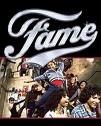






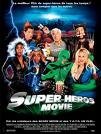



6 - Think of a film that you have seen recently, and answer the questions.
(Speaking activity)
1. What was the name of the film?
2. What sort of film was it?
3. Who directed it? Who starred in it?
4. What was it based on?
5. Where was it set?
6. What was it about?
7. How would you describe the film, the performance of the actors, the stunts and special effects?
8. Would you recommend it? Why?
7 – Do you know any of these famous people? Write their names under each picture.
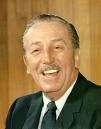
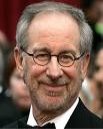
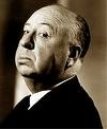





Ht Впр.5, с.135 (письмово)


про публікацію авторської розробки
Додати розробку


